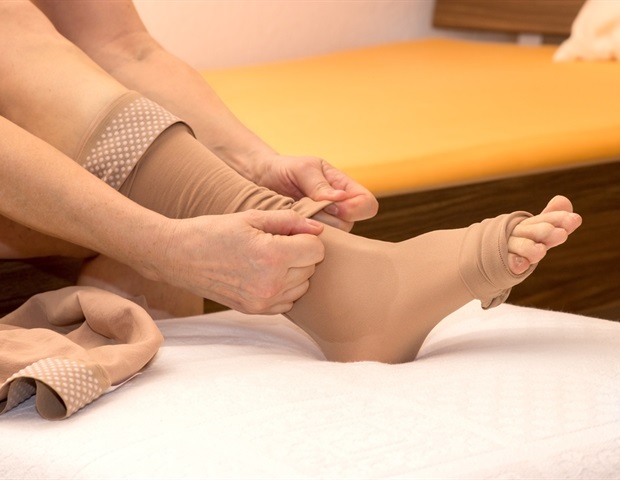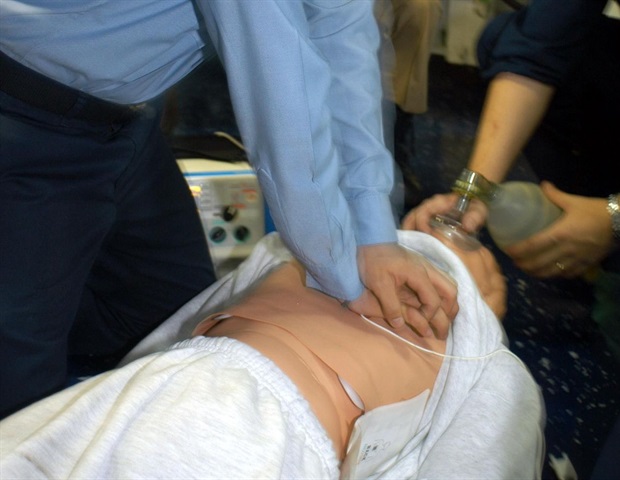By Steven Reinberg HealthDay Reporter
Even babies aren’t immune from the effects of long COVID, Danish researchers report.
Their study found that about one in three kids aged 14 and younger who tested positive for the virus were suffering from mood swings, trouble remembering or concentrating, and rashes as much as two months later.
“Prolonged symptoms in children must be taken seriously, regardless of whether the parents turn to their own general practitioner or another health service,” said lead author Selina Kikkenborg Berg, a clinical professor at Copenhagen University Hospital.
“Among children of all ages, long-term symptoms are more often seen in those who have had COVID than in those who have not,” she said.
Other studies have also investigated long COVID, but researchers said this was the largest to study the illness in children to date.
While the causes of long COVID aren’t clear, Kikkenborg Berg offered several possibilities.
“Micro-blood clots after virus can settle in the brain and cause fatigue and difficulty concentrating,” she said. “Also, the virus stays longer in parts of the body and can affect nerves and tissues, or an overreaction occurs in the immune system, which causes some of the symptoms.”
She noted that some kids who don’t get COVID-19 may suffer from some of the same symptoms reported in patients with long COVID. This might result from other infections or even from social pressure, Kikkenborg Berg said. But the number of kids with persistent symptoms was significantly higher among those with confirmed COVID-19 infections.
The study included just over 44,000 children in Denmark aged 14 and younger, including nearly 11,000 who tested positive for SARS-CoV-2.
Based on parent surveys, 40% of children aged 3 and younger with COVID-19 had symptoms for more than two months, compared with 27% of other kids.
Among 4- to 11-year-olds, 38% of those with positive tests had persistent symptoms, compared with 34% of others. Among 12- to 14-year-olds, 46% of those with confirmed cases had long COVID symptoms, compared with 41% of those who hadn’t been sick.
“Some of the children in the control group may have had COVID without knowing it because they had not tested positive,” Kikkenborg Berg said.
She noted that some children also may have been affected by shutdowns of schools, leisure activities and other things. Such closings make social interactions difficult and can lead to poor well-being, which can trigger physical symptoms, Kikkenborg Berg added.
“Also, children can get long-term symptoms because they have been affected by ordinary childhood diseases or other infections, which children get from time to time,” she said.
The full effect of long COVID isn’t known, and more research is needed to fully understand what causes it and how to treat it.
“There is still a lot we do not know about COVID, and one should not rush to recover from an infectious disease,” Kikkenborg Berg said. “If you suffer from fatigue, shortness of breath, fever and other symptoms, take it a little calmly and do not stress the body. Sometimes a viral disease takes longer to recover from.”
Infectious diseases expert Dr. Marc Siegel, a clinical professor of medicine at NYU Langone Medical Center in New York City, noted that a real definition of long COVID is still up in the air.
“We’re in the process of learning what long COVID is so we can better define how many people have it, but for sure kids are not immune to it,” Siegel said.
Siegel is especially concerned about fatigue, trouble concentrating, mood swings and difficulty with breathing, which he sees as hallmarks of long COVID.
Talk with your pediatrician if your child has any of these symptoms after having COVID-19, he suggested.
Siegel emphasized that kids should be vaccinated to reduce their risk for severe illness and long COVID.
“There’s actually no treatment right now, but I would make sure you’re fully vaccinated, even if you had COVID, because that gives you some immunity, which is even greater protection against a reinfection,” he said.
The findings were published online June 22 in The Lancet Child & Adolescent Health.
More information
The U.S. Centers for Disease Control and Prevention has more about kids and COVID.
SOURCES: Selina Kikkenborg Berg, PhD, clinical professor, Copenhagen University Hospital, Denmark; Marc Siegel, MD, clinical professor, medicine, NYU Langone Medical Center, New York City; The Lancet Child & Adolescent Health, June 22, 2022, online

Copyright © 2021 HealthDay. All rights reserved.







